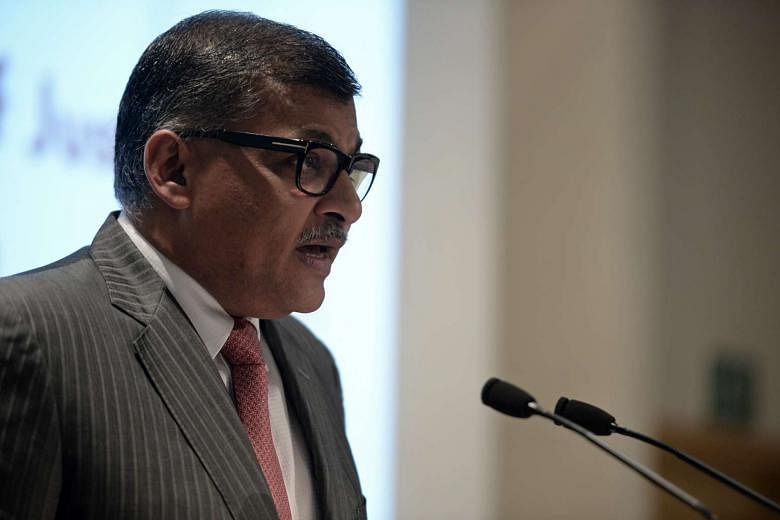SINGAPORE - A year after the Family Justice Courts (FJC) was created, its premises in Havelock Road can no longer house all its services because of its expanding work.
Starting next week, the FJC's divorce-related mediation and counselling services will be situated on the fourth floor of the MND Complex in Maxwell Road.
The new office will also house its probate services, which the FJC took over in January, as well as the mental capacity and adoption registries.
There will be two court rooms, three hearing chambers, nine mediation chambers and 14 counselling rooms in the FJC's second office.
Announcing the relocation at an event to mark the first anniversary of the FJC on Thursday (Oct 1), Chief Justice Sundaresh Menon said: "Our mission at the FJC is unique because we deal with the extremely delicate matter of distressed family relationships.
"This is the core business of these courts and our role will assume even greater importance in the years ahead."
CJ Menon noted that the annual ratio of marriage to divorce today is 4:1, compared to 13:1 in 1980.
Reported family violence is also on the rise, he said: "Since 1996, the number of applications for Personal Protection Orders and Domestic Exclusion Orders has nearly doubled."
The weakening of family and community bonds has also had an adverse impact on children, he added.
For example, youths have been over-represented as a proportion of all offenders. There were about 4,000 youths arrested annually in the past few years, accounting for about 22 per cent of the total crimes reported annually.
CJ Menon said the erosion of the family unit has made family adjudicators more important than ever and it calls for an approach that is holistic, multi-disciplinary and collaborative because family disputes are often symptomatic of other associated family issues.
The FJC, set up in October last year, integrates the Family Division of the High Court, the Family Courts and the Youth Courts through a single registry for family-related work.
It also aims to move towards a softer approach of resolving conflicts through a greater focus on counselling and mediation.
Building on the FJC's success of implementing a more holistic and humane approach towards resolving family disputes, the CJ highlighted three areas for improvement, moving forward.
Firstly, more specialist family mediators will be trained early next year.
The FJC accredited its first batch of 24 specialist family mediators - comprising mainly FJC district judges and senior lawyers - between November last year and January this year.
Secondly, the FJC will expand its pilot of the Child Inclusive Dispute Resolution model, which saw 75 per cent of 20 families - 40 parents and 35 children - reach an agreement on all children's issues.
The model incorporates an interview with children to better understand their feelings and perspectives on their parents' disputes.
Finally, more court volunteers will be trained under the Court Friends scheme - in partnership with the Community Justice Centre and NUS law faculty's Pro-Bono Office - to support the increasing number of self-litigants.
The FJC has already trained 23 volunteers through the scheme, to not only provide information on court procedure and processes, but also give emotional and moral support to self-litigants.

